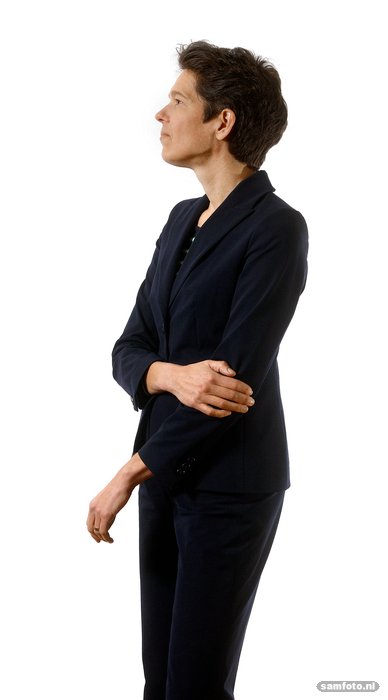View of Neelke Doorn
How can we make the Zuid-Holland delta more resilient? Ethics professor Neelke Doorn (TPM) is working on it. She has plans for a living lab in Rotterdam-Zuid.
The hot summers we’ve seen in recent years have led to increasing realisation that climate adaptation is not just about rising sea levels, but also drought and adaptations to water consumption. This is now being factored into urban planning and the setting up and maintenance of infrastructure. It’s no coincidence that the Rotterdam region is taking an enthusiastic interest. The city faces a series of decisions about investments in infrastructure and planning of the built environment. Some plans from the past have not turned out well; for example, they focused solely on preventing flooding and took no account of ecology or drought. A different approach is needed. But what kind?
The magic word is resilience: it means more flexibility in our delta system. We want to prevent floods, but also protect drinking water supplies. The demands placed by ports on the water system need to be harmonised with nature. In the past, people opted for a single function: protection against flooding or accessibility of the port, for example. Any other functions of the water system were given less priority.
A resilient system fulfils all these functions and can adapt, for example, to the changing climate but also to demographic trends. It looks as if sea levels could rise quickly, but you don’t want to invest now in measures that in 30 to 40 years’ time turn out no longer to be adequate or even too extreme. Resilience means that you can adapt measures to accommodate new developments and threats.
Engineers generally associate resilience with infrastructures, but it also relates to inhabitants. For example, Rotterdam-Zuid, the district that plays a central role in the Resilient Delta theme, has multiple problems. Many inhabitants are unhealthy, poorly educated and have little chance of getting a job. Their living environment is not conducive to a healthy lifestyle and more exercise.
We can make a neighbourhood more resilient by structuring it in a way that encourages people to come outside to meet or play with each other. More green space in the city not only helps collect water more effectively in extreme downpours, but also promotes cooling during heatwaves and makes the environment more attractive. Health and exercise encourage social cohesion and bring people together.
The Convergence programme is working hard to achieve this. The City of Rotterdam is interested in the projects for the port and wider delta and in the plans for Rotterdam-Zuid. I hope to be able to launch a first Living Lab there this year.”
Resilient Delta is one of the three themes within the Convergence programme run by TU Delft, Erasmus University and Erasmus MC. Prof. Neelke Doorn, Professor of Ethics of Water Policy and Water Technology in the Faculty of TPM, is coordinating the Delft contributions, together with Prof. Dirk van Gameren (Architecture and the Built Environment).
